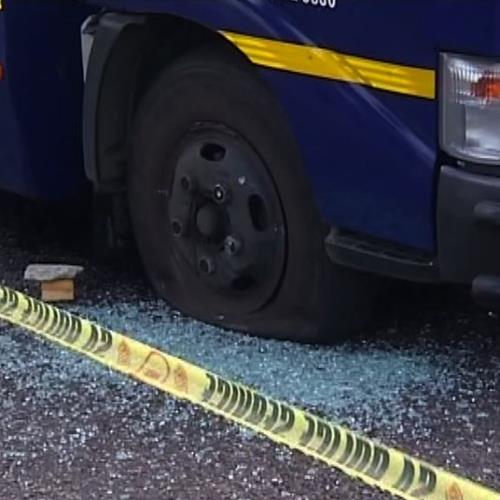News
Deadly Temptation: Why Picking Up Money at Cash-in-Transit Heists Can Cost Your Life

In South Africa, the sound of explosives on a busy road often signals another cash-in-transit (CIT) heist, a crime so common it’s earned grim familiarity. But what sometimes follows is just as dangerous: crowds rushing to scoop up notes scattered in the aftermath. Experts are warning, once again, that this practice can end in tragedy.
A deadly Dawn Park scene
Earlier this week, Gauteng police confirmed that two bystanders were shot and killed during a violent CIT robbery on Barry Marais Road in Dawn Park. The chaos began when robbers rammed a cash delivery truck with a silver Mercedes-Benz, causing the vehicle to overturn onto a Toyota Quantum taxi carrying seven people.
Five passengers were injured, two escaped unharmed, and within minutes, gunfire echoed as security officers and robbers exchanged shots. The assailants, around eight men strong, bombed the cash vehicle and fled with an undisclosed amount of money.
Amid the chaos, tragedy struck: two bystanders caught in the crossfire never made it home.
The lure of “free” money
It’s not the first time South Africans have risked their lives at crime scenes to pocket fallen banknotes. In some townships, clips of people running with armfuls of cash after a heist have even gone viral. For many struggling under the weight of unemployment and poverty, the temptation of “free money” can feel impossible to resist.
But security analysts warn this is a dangerous misconception.
“Don’t touch that money” – expert
Renowned crime strategist and retired Interpol ambassador, Andy Mashaile, says the risks of joining that scramble are staggering.
“It is not only dangerous from being shot by sweepers from the gang that carried out the CIT robbery, but also a criminal offence,” he explained. “Once a robbery occurs, that area becomes a crime scene. Police forensics need it undisturbed to collect evidence.”
Mashaile added that anyone grabbing cash not only contaminates evidence but may draw lethal retaliation. “Gangs sometimes return to track who took the dropped money. That can put entire families in grave danger.”
Social media reaction
The Dawn Park incident sparked heated debate online. Some South Africans expressed shock at the deaths, while others voiced frustration at communities risking their lives for money “tainted with blood.”
“People think it’s manna from heaven, but it’s a death trap,” one user posted on X. Another said, “How bad is our economy when ordinary people see bullets flying and still chase after scraps of cash?”
A crime wave with lasting scars
Cash-in-transit heists have become a chilling feature of South Africa’s crime landscape. Beyond the robberies themselves, the ripple effects, injured bystanders, traumatised witnesses, destroyed property, and contaminated crime scenes leave scars on entire communities.
Police investigations into the Dawn Park robbery are ongoing, but the message from experts is clear: resist the temptation. That scattered money is not a blessing. It’s bait in a trap that has already claimed too many lives.
{Source: IOL}
Follow Joburg ETC on Facebook, Twitter , TikTok and Instagram
For more News in Johannesburg, visit joburgetc.com


























